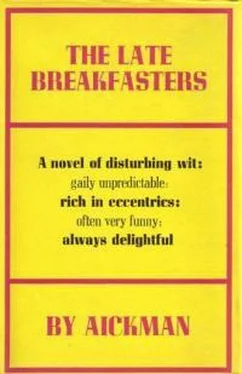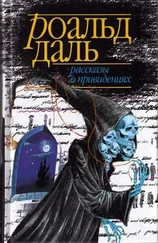The Late Breakfasters
Robert Aickman
I dedicate this book to
HERBERT VAN THAL
Magician
Part One
I
Griselda de Reptonville did not know what love was until she joined one of Mrs Hatch’s famous house parties at Beams, and there met Leander. Her brief and blighted association with Leander led rapidly, as a reaction, to her marrying the unsatisfactory Geoffrey Kynaston. After Kynaston’s death, she took up with an unpopular baronet, and lived with him very happily. There may have been one or two earlier episodes, none of them important. She is now twenty-five and has never wholly forgotten Leander; their ecstatic community of thought and feeling is something she fears she has lost for ever. She knew its worth at the time; she never for a single moment doubted it: but society was inevitably too strong for her, and ate her improper passion at a gulp. Leander doubtless never expected anything else, and therefore possibly suffered less, but of this there is little record.
A woman of less spirit would have blushed at being named de Reptonville; wearied of being called patient, and of the remarkably general assumption that by reason of her name she would always be so. De Reptonville, when Mr Repton assumed the name (early in the nineteenth century), was quizzed as the apogee of unwarranted pretentiousness; now it is written off as a meaningless relic of conquest feudalism. Griselda, however, merely smiled sometimes when she looked at her visiting card, newly printed in flawless italics by Parkin and Gotto. The repetitive jokes about her patience only led her to think that in the absurdity of human nature lies much of its charm.
Beams was not an enormous house but it was approached from the insanely noisy main road through Hodley village by a drive two miles long. There had been a car to meet her and the other guests at Hodley railway station; but the season had called to Griselda, and the other guests alarmed her. She had sent on her suitcase, and was now following on foot. As the weather looked settled for an hour or so, her jacket and handbag had gone on with the luggage: she was now wonderfully unencumbered. She wore a white silk blouse, a short skirt of black linen, and substantial shoes. She walked fast, swinging her arms and singing ‘Now that I have springtime.’ This song came from The Three Sisters by Hammerstein and Kern, which she had seen at Drury Lane the previous evening with a girl whom she had known since childhood. The drive was lined with poplars, slightly discoloured with dust from the new works of the North Downs Cement Company, which now gave good employment to the village.
Beams had a glorious situation (once or twice a year it was possible to see the English Channel from the top of the tower); but as architecture it was unremarkable. Run up by the Duke of St Helens, owner at that time of Hodley Park (since demolished), to provide accommodation for a great Belgian actress named Stephanie des Bourges, whom he had loved frenziedly until her premature death, it was soon acquired by Mrs Hatch’s grandfather, a rising merchant banker, called Eleutherios Procopius. His son John Procopius represented the Division in Parliament for the remarkable period of sixty-one years. At his death he left Beams to his only child Melanie, together with more than three million pounds, which would at that time have enabled either of them to live in something larger. The Procopiuses had never, it seemed, been lucky in love: of Mrs Eleutherios there is no record at all; Mrs John died in childbirth the year after her marriage to a man aged nearly sixty; Melanie married during the Boer War a certain Captain Hatch of the CIVs, who almost immediately proceeded to drift away from her and in one way and another to resist recapture during a period of time not expired at the date now under construction. Beams, none the less, had eighteen reasonable bedrooms and was a wonderfully comfortable place to visit. It was, however, haunted: quite seriously, even, on occasion, dangerously, by the apparition of Mademoiselle des Bourges, beautiful even in death.
After glancing at the view, which only burst upon the visitor as he or she reached the lovely gravel waste before the house, Griselda pulled the elaborate bell handle. Though apparently designed to operate an old-fashioned bell wire, the handle proved, in fact, to have been connected with a modern electric system. Before the servant could reach the door, it opened and an elderly gentleman passed out of the house into the garden. He was wearing rather shabby tweeds, leggings, and a black homburg hat. On seeing Griselda he jumped considerably, and nervously raised his black hat; then, without a word, linked hands behind his back and shambled off towards the rose garden. Griselda noticed that he was still shaking perceptibly with the shock of their encounter. By now a middle-aged footman had arrived. Griselda had never before seen a servant in appropriate livery except in musical comedy.
‘Good afternoon, miss.’
‘Good afternoon. I’m Miss de Reptonville. Mrs Hatch is expecting me.’
‘I’m sorry to have kept you waiting, miss. It’s the new bells. The Prime Minister got to the door first, I’m afraid.’
‘Was that Mr Leech?’ Griselda had thought there was something familiar about the quivering figure.
‘Regular visitor, miss. In office or out. Mrs Hatch makes no distinction. Would you care for me to show you to your room?’
‘Thank you.’ The front door closed behind her. ‘I sent on my luggage in the car. Also my handbag and jacket.’ After the spring sunshine, the house seemed cold.
‘They have been taken to your room, miss. This way please.’
The large hall, though filled with comfortable armchairs and sofas (a little like a furniture shop window, Griselda thought), was completely empty. She followed the footman up the wide staircase. A royal blue carpet completely covered the shallow risers. The mahogany balusters were expensively hand-carved. After the soft spring tumult outside, the house seemed silent.
‘We’ve only just ceased the central heat,’ remarked the footman over his shoulder as he trudged before Griselda down one of the passages which radiated from the gallery encircling the hall.
Griselda noticed the gilded pipes at frequent intervals.
‘You’ve got the Newman Room, miss.’ He opened the door.
‘Why is it called that?’
‘Cardinal Newman used to sleep here when he came to stay.’
‘Was that often?’
‘Often, they say. To write his books and that. Mr Cork’s got many tales of him. He’s our Head Gardener. You must get him to tell you.’
‘I’ll remember. Thank you.’
‘Thank you, miss.’ He withdrew.
The Newman Room was large, square, well-lighted by windows in two walls, well-heated by a coal fire in a modern grate of patented design. Neither beautiful nor particularly ugly, it had recently been entirely refurnished by a contractor. It had no atmosphere whatever; of its eminent former occupant, or of anybody or anything else.
Griselda began to unpack. The drawers slid on stainless steel runners; the innumerable hangers in the wardrobe rattled together like the bones of a dancing skeleton. In the corner of the room was a cabinet, which proved to contain a shower, with a bath adjoining. Griselda turned the tap: the water cascaded downwards with terrifying force, far exceeding the capacity of the wastepipe in the floor. It was difficult to imagine anyone standing beneath that cataract and emerging undrowned. The water began to flow out of the cabinet and soak the bedroom carpet in a rapidly expanding black blot. Griselda rotated the tap (it seemed to be geared very low, she thought); but all that happened was that the downpour suddenly became scalding hot. A great cloud of steam filled the bedroom, like a geyser suddenly blowing off.
Читать дальше




![Роберт Эйкман - Холодная рука в моей руке [сборник litres]](/books/438747/robert-ejkman-holodnaya-ruka-v-moej-ruke-sbornik-l-thumb.webp)





